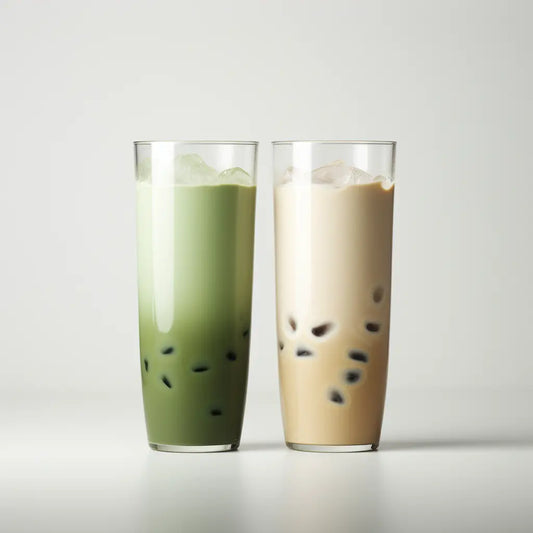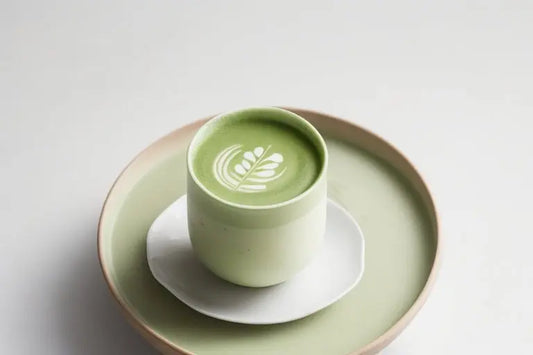Table of Contents
- Introduction: Matcha and the World of Tea
- Matcha: A Top Contender in the Tea World
- The Digestive Side of Matcha
- Unraveling the Poop Paradox: How Does The Body Respond to Matcha?
- Health Benefits: What Else Can Matcha Do?
- All Things Moderate: Recommended Amounts
- Matcha vs. Other Teas: A Comparison
- Enjoying Matcha: A Matter of Taste vs. Health
- Conclusion: Demystifying Matcha Poop
Introduction: Matcha and the World of Tea
Ever pondered over your cup of tea and wondered about the potential outcomes of indulging in its enticing flavors? For our fellow tea lovers, such questions aren't absurd: they purvey a curiosity that extends beyond the realms of taste into the corridors of wellness. Thereupon nudging the striking query: Does matcha make you poop? Fear not; we are here to dissect this myth versus reality.
Stepping into the world of tea, we're introduced to a plethora of varieties. Some are mild and calming; others are potent and invigorating. All in all, these contrasting characters come together to form a cosmos of delicacies that offer more than just a warm, comforting beverage—they invite us to a personalized journey of wellness.
Matcha: A Top Container in the Tea World
Widely renowned for its gusto, matcha is a star in the world of tea—an epitome of the perfect fusion of taste and health. The emerald-green tea powder, derived from the Japanese tea leaf, Camellia sinensis, boasts a rich, creamy taste that whisks tea enthusiasts into a realm of gastronomic bliss.
But matcha isn't just about exotic flavors; it's about balance. It's about the synergy between its velvety taste and the manifold health benefits it offers, which brings us to the bone of our contention: Does matcha make you poop?
The Digestive Side of Matcha
In a nutshell, the answer is 'yes'—matcha green tea does have a stimulating effect on our digestion. But to understand this stimulative effect, we must first glance at what this magical powder contains.
Matcha is a goldmine of dietary fibers—one of which is 'insoluble fiber.' These fibers are rather stubborn; they resist digestion and barrel down the gut, unscathed. As they traverse through our digestive system, they add bulk to our stools, which can by extension, encourage bowel movements.
Unraveling the Poop Paradox: How Does The Body Respond to Matcha?
Enemy or friend? To the consumer, matcha's penchant for frequent bathroom visits might be a catch-22. The body, however, thinks otherwise. The increase in bowel movements can be quite cleansing and beneficial for gut health.
The insoluble fibers present in matcha tea aren't digested, which helps to keep your digestive tract in check by moving food quickly through the intestines. The movement of these fibers propels the expulsion of toxins and waste from your body, promoting a healthy digestive system.
Health Benefits: What Else Can Matcha Do?
The known benefits of matcha span far beyond digestion. The powerhouse of antioxidants it is, matcha is speculated to aid in weight loss, enhance concentration, boost the immune system, control blood sugar, and even augment heart health. Could a humble cup of tea do more? We'd argue not.
These benefits present the other side of the "does matcha make you poop" question—it might, but for good reasons!
All Things Moderate: Recommended Amounts
While matcha indeed posits a multitude of health benefits, ingesting it should be kept within recommended amounts. The general guideline suggests that up to two cups of matcha tea per day suffices for an adult. Excessive consumption could counteract the health benefits and cause discomforts such as diarrhea or stomach cramps.
As the old adage wisely implores—"moderation is key." Minding the balance will help you reap the healthful benefits of matcha without the potential downsides.
Matcha vs. Other Teas: A Comparison
Now that we've established an understanding of matcha and its multi-faceted nature, it's worth comparing matcha to other teas. How does it fare against its calm kin—chamomile or peppermint—or its robust cousins like black or oolong tea?
The most notable distinction, besides flavor, lies in their digestive effects. While most teas have a mild influence on digestion, matcha's impact is indeed more penetrating due to its richness in insoluble fibers.
Enjoying Matcha: A Matter of Taste vs. Health
To appreciate matcha is to understand its balance: the pivot between flavor and health. Yes, the tea may indeed stimulate more frequent bowel movements, but that shouldn't deter enthusiasts from its captivating allure. Embrace matcha for its totality—its taste, its health benefits, and yes, its prowess in promoting solid digestion.
Make the most out of the matcha experience by integrating it into an array of culinary delights—from lattes and smoothies to desserts, matcha is as flexible as it is beneficial. Embrace its unique character, and let it redefine your tea adventure.
Conclusion: Demystifying Matcha Poop
By now, our journey through the intricacies of matcha digestion should have debunked the blanket assertion that "matcha makes you poop." Indeed, it does, but the real story extends beyond this straightforward statement.
Circling back to our query, matcha does boost digestion, thereby triggering bowel movements. Yet, this 'drawback' metamorphoses into a benefit when taken in moderation, as it aids detoxification and fosters gut health, not to mention the other robust health benefits that tag along. So, does matcha make you poop? Yes, it just might, but perhaps for the better!
Frequently Asked Questions
-
What is matcha?
Matcha is a type of green tea made from finely powdered, high-quality tea leaves. It originates from Japan. -
Does matcha make you poop?
Yes, the insoluble fibers present in matcha can stimulate digestion and promote bowel movements. -
Can drinking too much matcha cause diarrhea?
Excessive consumption of matcha could indeed lead to digestive discomforts like diarrhea. As with anything, moderation is key. -
Does matcha have more health benefits than other teas?
Each tea variant has unique health benefits. Matcha stands out for its concentration of nutrients and antioxidants, given that you're consuming the whole leaf. -
What is the recommended daily intake of matcha?
For adults, up to two cups of matcha tea per day is generally considered safe and beneficial. -
Can I add matcha to food and drinks other than tea?
Absolutely! Matcha is versatile and can be added to lattes, smoothies, desserts, and more.



